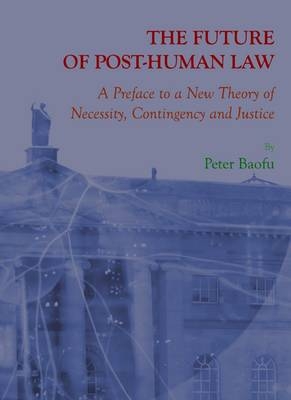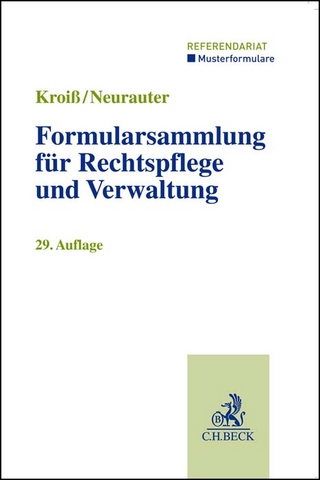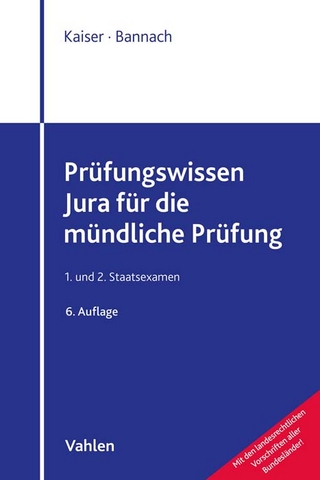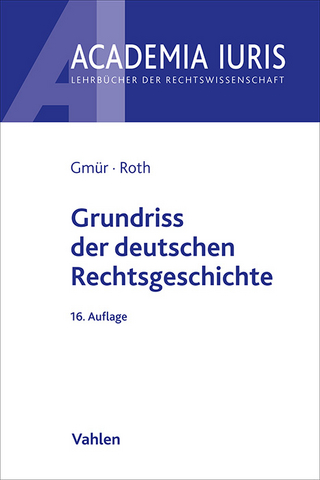
The Future of Post-Human Law
Cambridge Scholars Publishing (Verlag)
978-1-4438-1949-7 (ISBN)
What makes the rule of law so special that it is to conscientiously punish the “bad” doers and reward the “good” ones—such that, where there is the rule of law, peace and order are to be expected, so that “the rule of law is better than the rule of any individual”?Take the case of international law, as an illustration. While different international courts have been busy going after the killers of innocent victims in Rwanda and Liberia, they have turned a blind eye to the major powers which have killed—on a much larger and more brutal scale, by comparison—innocent civilians in Iraq and Afghanistan, just to cite two current examples. Contrary to the conventional wisdom conveniently held by many in human history, the rule of law has its other side which has not yet been systematically understood, such that the rule of law is neither possible nor desirable to the extent that the defenders of legal institutions in human history would like us to believe. Lest any misunderstanding hastily occur, this is not to imply that the rule of law is absolutely useless, or that the literature in jurisprudence (and other related fields like political philosophy, ethics, law and economics, and the sociology of law) should be dismissed because of its scholarly irrelevance. Of course, neither of these two extreme views is reasonable either. Instead, this book provides an alternative (better) way to understand the nature of law, in relation to its necessity and contingency in the context of justice—while learning from different approaches in the literature but without favoring any one of them (nor integrating them, since they are not necessarily compatible with each other). In the process, this book offers a new theory to transcend the existing approaches in the literature in a new direction—in that, in the end, there is no justice without injustice and that it will be transcended too. This seminal project, if successful, will fundamentally change the way that we think about the nature of law, from the combined perspectives of the mind, nature, society, and culture, with enormous implications for the human future and what I originally called its “post-human” fate.
Dr. Peter Baofu is the author of 40 new theories in 29 books which provide a visionary challenge to conventional wisdom in all fields of knowledge ranging from the social sciences through the formal sciences and the natural sciences to the humanities, with the final aim of a unified theory of everything. He is known for his pioneering works on “post-humanity,” “critical-dialectic formal science,” “combinational organization,” the “hyper-sexual body,” “comprehensive creative thinking,” the “hyper-martial body,” “multilogical learning,” “contingent urban planning,” “post-capitalism,” “selective geometry,” “post-democracy,” “contrastive advantages,” “ambivalent technology,” “authoritarian liberal democracy,” “the post-post-Cold-War era,” “post-civilization,” “transformative aesthetic experience,” “synthetic information architecture,” “contrastive mathematical logic,” “dialectic complexity,” “after-postmodernity,” “sophisticated methodological holism,” “post-human space-time,” “existential dialectics,” “unfolding unconsciousness,” “floating consciousness,” “hyper-spatial consciousness,” and other visions. Dr. Baofu earned an entry to the list of “prominent and emerging writers” in Contemporary Authors (2005) and another honorary entry in The Writers Directory (2007)—and was also interviewed on television and in newspapers about his original ideas. He was a U.S. Fulbright Scholar in the Far East. He had taught as a professor at different universities in Western Europe, the Caucasus, the Middle East, the Balkans, Central Asia, South Asia, and North America. He finished more than 5 academic degrees, including a Ph.D. from the world-renowned M.I.T., and was a summa cum laude graduate.
| Verlagsort | Newcastle upon Tyne |
|---|---|
| Sprache | englisch |
| Maße | 148 x 212 mm |
| Themenwelt | Recht / Steuern ► Allgemeines / Lexika |
| Recht / Steuern ► EU / Internationales Recht | |
| ISBN-10 | 1-4438-1949-2 / 1443819492 |
| ISBN-13 | 978-1-4438-1949-7 / 9781443819497 |
| Zustand | Neuware |
| Haben Sie eine Frage zum Produkt? |
aus dem Bereich


